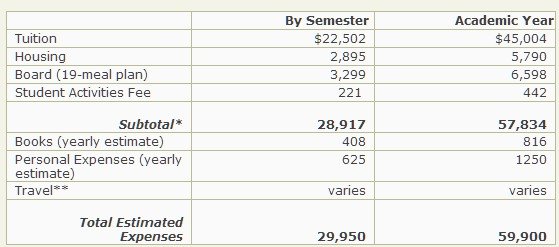I paid my way through undergrad by doing a coop program (engineering) + getting a few scholarships. Graduated with no debt and only a little help from parents. Is this possible at state schools in the US today? The main drawback of doing the coop program is that it takes an extra year to graduate so the opportunity cost is high.
Regarding taking community college for two years and then transferring -- is it possible to do this for STEM programs? In engineering, we had a fairly rigorous and well defined curriculum -- i do not think a CC transfer would have the right background courses and probably would have experienced a severe shock in difficultly.
I'm in NC and recall folks doing 2 year associates "college transfer" program at the nearby CC and transferring to the state university in the same town to pursue an engineering degree. Many were disappointed since the engineering program has specific requirements like "calculus for engineers", "physics for engineers", etc. They were beefed up harder classes that the engineering school required for engineering majors to pass with a C or better to matriculate into a designated engineering curriculum.
If you took the regular flavor of calc or physics (what a business or biology or humanities major might take), you would have to retake the entire course to count toward the engineering graduation requirement (and you had to take the right flavor of calc/physics etc to even be able to take subsequent engineering courses). I think it is so that the engineering program can maintain ABET accreditation for their engineering program (generally a requirement to qualify graduates to take the FE exam and subsequently take the PE exam).
Out of curiosity, I just took a look at the CC's Associate's in Science Pre-major-Engineering. It looks like you spend 2 years getting an AA that will get you maybe 1 year of engineering credit at the university in the civil engineering dept. The comp sci won't transfer to anything useful apparently. And you'll miss another freshman level computer class. You can do the physics and 1st year math (but you should really have that out of the way in HS honestly). But for the second year at university, you'll get virtually nothing from the CC (other than the E+M physics course that will transfer, and possibly 1 elective if you carefully choose it and it fits the uni-approved list). The engineering curriculum has a series of prerequisites that mean if you start at university in year 3 as a junior, but you missed the year 2 pre-reqs, it's not likely you can finish in 4 years without some serious hustling. The CC curriculum skips the 2nd year uni maths that you need as a pre-req, and all of the discipline specific engineering courses that you need going into the 3rd year.
The engineering curricula at my alma mater have very little fat to trim and jump into discipline specific courses early on (in the second year, or 1st year if you come in with some transfer credits or credits from good AP scores). I pulled the Plan of Study for my eventual civil engineering major pretty early in HS and selected high school courses and college release courses that counted toward my major. I managed to finish all my maths, physics, chemistry, and engineering electives (thermodynamics and the euphemistically named "Intro to Electrical Engineering") before I officially started as a full time student in my first fall semester.
The biggest expense for kids going into college is the opportunity costs of a year out of the work force honestly. If you do the CC then college transfer to an engineering program and end up taking an extra year to finish the degree, that's $40-60k you just missed out on, plus a year of experience that would have made you more valuable each year into the future, and you'll get your PE 1 year later (that was a $7500 pay bump for me).
I'll definitely keep my eyes open to the CC option for my kids, but I'm not sure it's a good route here in NC if they are headed into an engineering program.
FWIW, my nephew is doing the 2 year CC option and planning to transfer but I doubt it will be into an engineering program.

